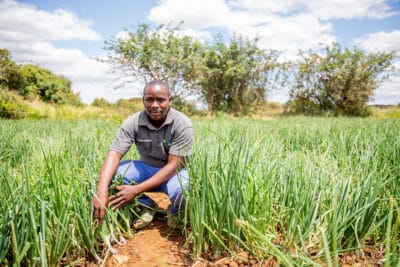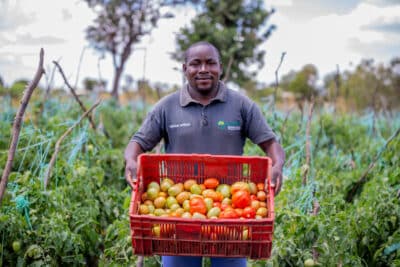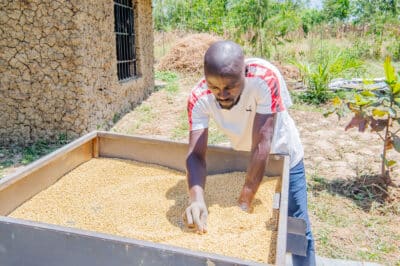News
Kenya
6 November 2025
Regenerative agriculture drives soil recovery and higher incomes across eastern Kenya
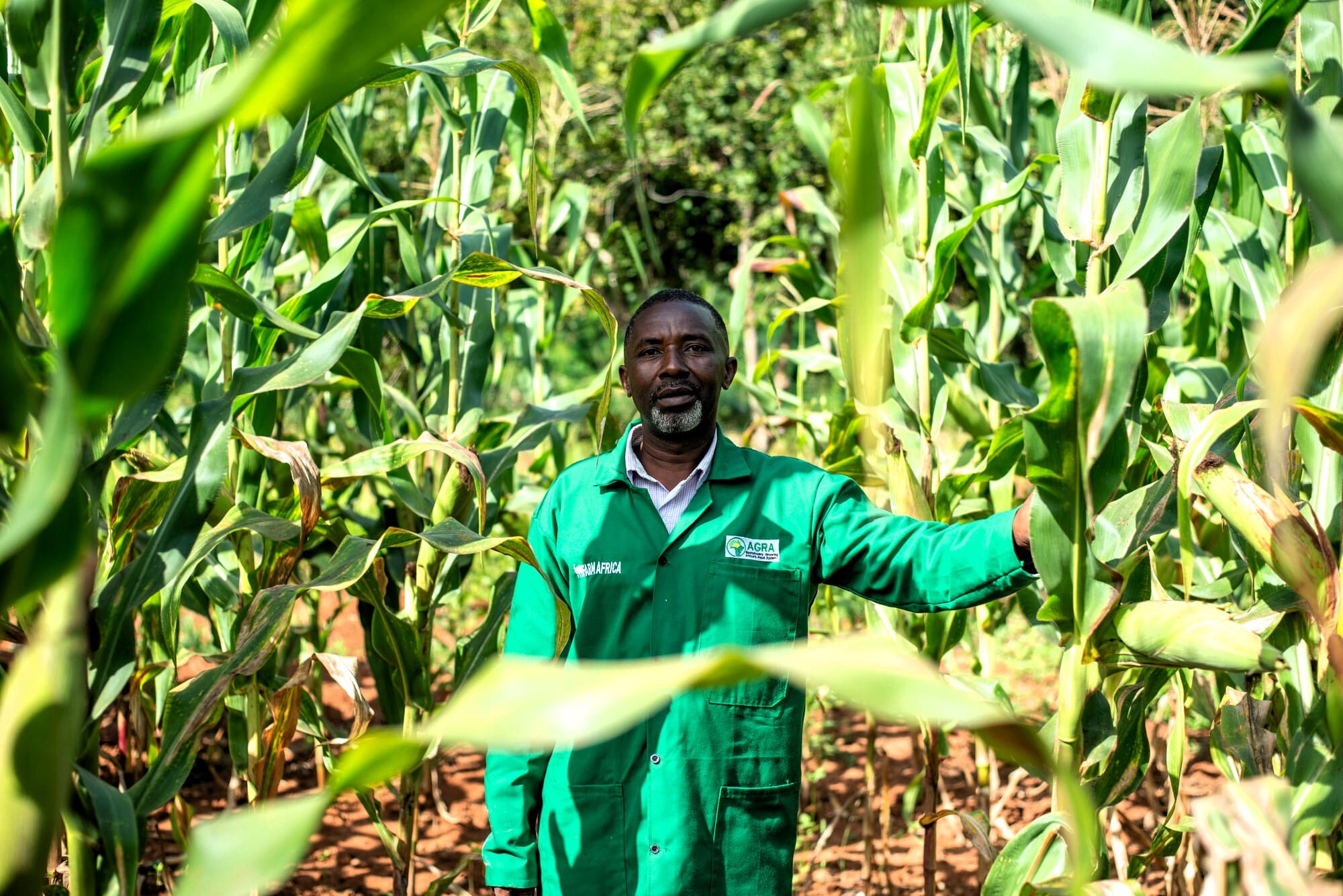
A village-based advisor taking part in Farm Africa's regenerative agriculture project, at his maize farm in Embu, Kenya.
New evidence released by Farm Africa and its partners shows that regenerative agriculture is transforming smallholder farming systems in Kenya, particularly in Embu and Tharaka Nithi counties.
Between 2017 and 2024, more than 50,000 farmers, supported through the Strengthening Regenerative Agriculture in Kenya (STRAK) project, implemented by Farm Africa in partnership with AGRA, adopted regenerative practices learnt from a network of Village-Based Advisors (VBAs). The project promoted climate-resilient farming, improved soil health and boosted rural livelihoods by equipping farmers with practical skills and evidence-based regenerative techniques.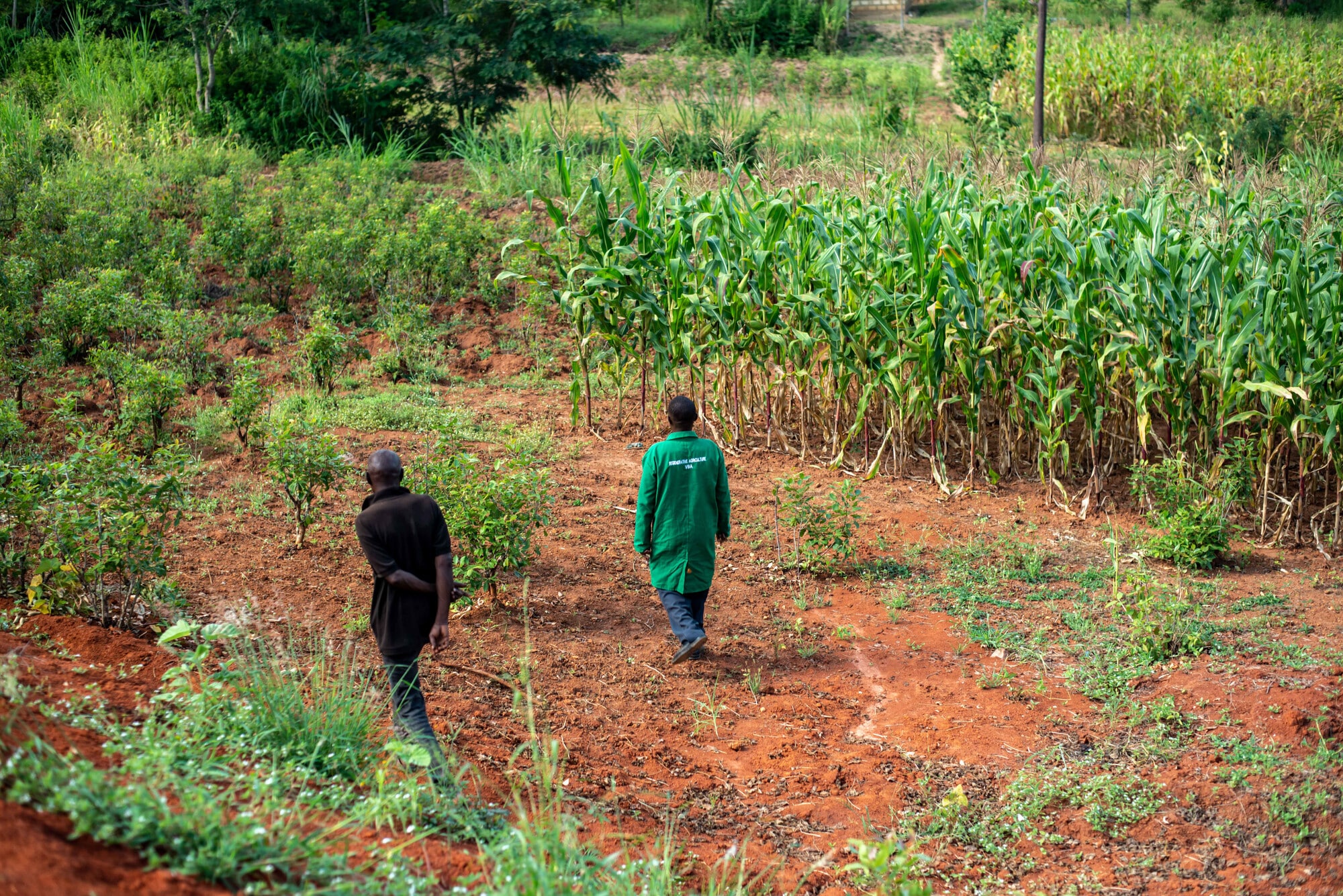
Quantitative and qualitative learning from STRAK’s participants and field surveys shows a remarkable shift in farming practices. Over 70 percent of participating farmers in Embu and Tharaka Nithi counties have adopted techniques such as intercropping, crop rotation, agroforestry, use of farmyard manure and cover cropping.
As a result, farmers reported up to 81 percent higher yields per acre, 92 percent improvement in water retention and a significant reduction in crop failure and soil erosion. Decreased dependence on chemical inputs has further improved farm profitability and resilience across both counties.
"These results clearly demonstrate that regenerative agriculture is not just an environmental intervention, it is an economic one."

Mary Nyale
Country Director, Kenya
To validate these outcomes, the Center for International Forestry Research and World Agroforestry (CIFOR-ICRAF) conducted a scientific analysis of over 2,000 soil samples from the project sites. The study found that mulching-based regenerative agriculture boosted soil water infiltration by 19 to 38 percent, biomass transfer increased soil organic matter and soil biota improved significantly with nematodes increasing by 200 percent and Arbuscular Mycorrhizal Fungi (AMF) colonisation by 63 percent.
These results confirm that regenerative agriculture improves soil health, restores microbial diversity, enhances yields and contributes to long-term landscape restoration, particularly in highland areas with cooler and wetter conditions.
Complementary data collected through satellite imagery and artificial intelligence further validated the ground-level evidence. Between 2017 and 2024, Downforce Technologies recorded measurable increases in Soil Organic Carbon (SOC) across Farm Africa’s regenerative agriculture sites. In collaboration with Rabobank’s ACORN programme, 21,658 farmers have transitioned to regenerative agroforestry, bringing 14,175 hectares under tree-based systems that have captured 24,945 tonnes of CO₂ and generated more than Ksh 85 million cash and in-kind carbon incentives for farmers.
Country
Kenya
Key focus areas
Act on climate change
Boost productivity
Protect ecosystems
Farm Africa regenerative agriculture evidence in Embu and Tharaka Nithi counties
This presentation outlines the evidence of the impact of the use of regenerative agricultural practices on soil’s health, microbial diversity, organic carbon and fertility; crop yields; income streams and tree density on farms in Embu and Tharaka Nithi counties in Kenya. The practices were adopted by farmers participating in Farm Africa and AGRA’s regenerative agriculture project.
Download (1.77mb)
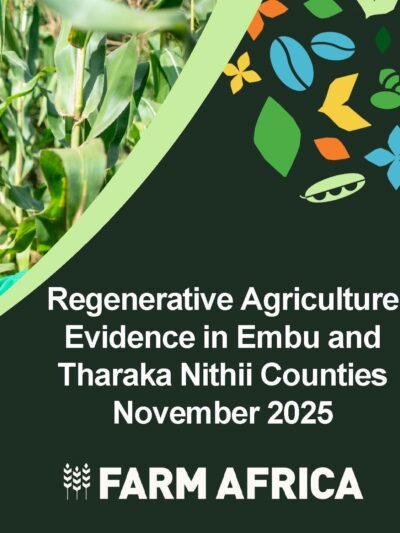
Country
Kenya
Key focus areas
Act on climate change
Boost productivity
Protect ecosystems
“These results clearly demonstrate that regenerative agriculture is not just an environmental intervention, it is an economic one,” says Mary Nyale, Country Director, Farm Africa.
“By equipping smallholder farmers with the tools, knowledge and market linkages to farm regeneratively, we are seeing sustainable improvements in yields, soil fertility and incomes. This evidence shows that regenerative agriculture can work at scale and deliver measurable impact for both people and the planet.”
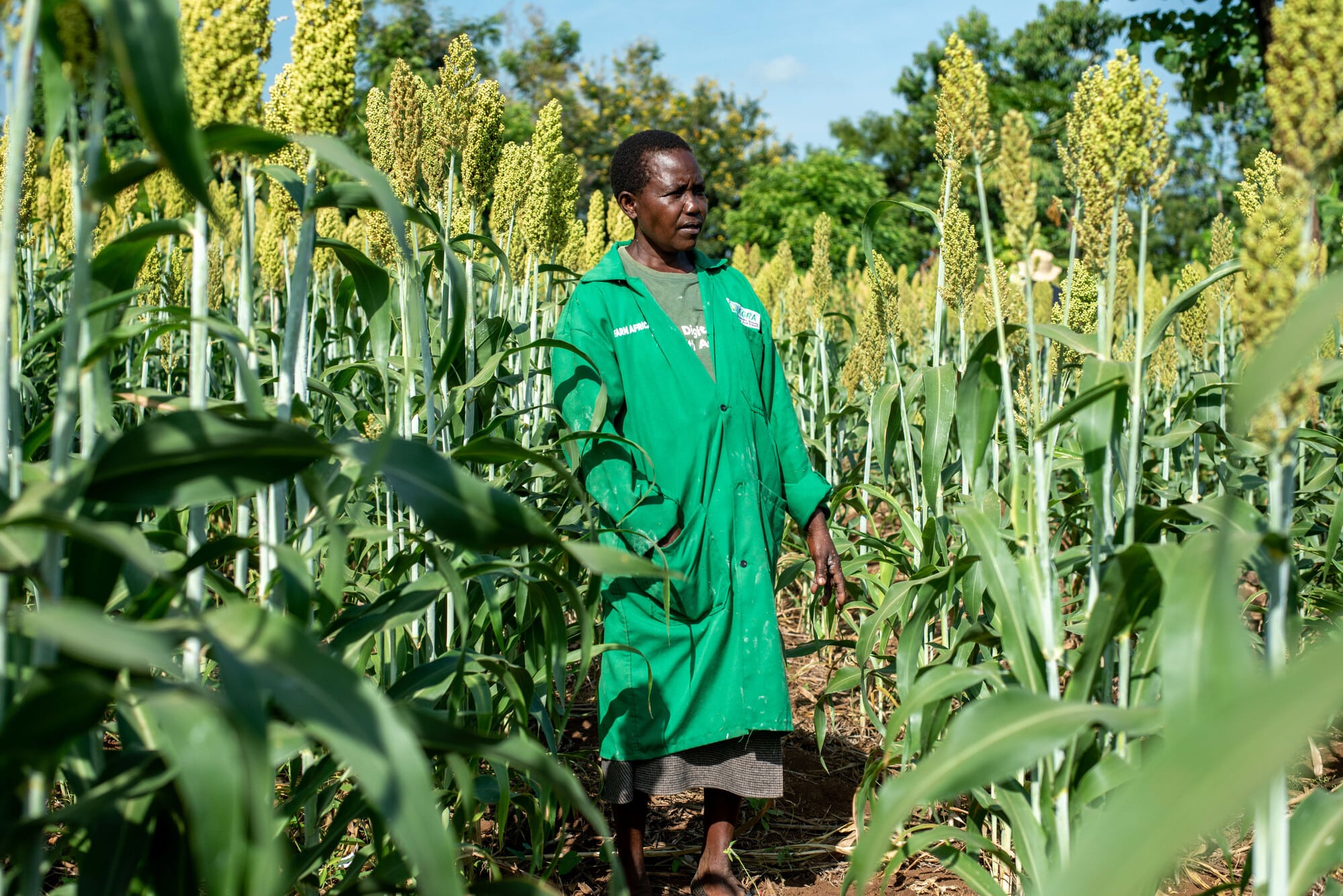
A village-based advisor for Farm Africa’s regenerative agriculture at her sorghum farm in Tharaka Nithi, Kenya.
The STRAK project’s participatory learning approach has been instrumental in driving behaviour change among farmers and VBAs. By combining farmer-led experimentation, business mentorship and continuous data collection, Farm Africa has helped ensure that regenerative practices are not adopted as isolated techniques but as a holistic pathway to sustainability.
The project’s learning products anchored on both business and household-level surveys demonstrate the economic and ecological viability of regenerative agriculture as a scalable model for climate-smart farming.
As Farm Africa celebrates 40 years of working alongside smallholder farmers, across eastern Africa, the organisation remains committed to promoting sustainable, climate-resilient agriculture that strengthens livelihoods while protecting natural ecosystems.
The evidence emerging from Embu and Tharaka Nithi underlines the impact of this long-term commitment and offers a strong case for scaling regenerative agriculture nationally.
